之后的某天,一名秀才路过此地,认为“高弟”之名太过庸俗,难登大雅。于是挥毫泼墨,将“高弟”中的“弟”字,改为有高中科举、高家府第之意的“第”,“高第街”一名便一直流传至今。
One day, when a scholar passed by the street, he thought the character “弟(brother)” of the street name was too plain and therefore changed the word into “第”, which shared the same pronunciation with “弟” but had more auspicious meanings—passing the imperial examinations or indicating the residence of a high official. The street has come down as Gaodi Street(高第) since then.
高第街的历史,源远流长,至少可以追溯到唐宋时期。据广州文史资料记载,唐代丞相、诗人张九龄的后裔张子颐,在宋代时从粤北的曲江(今广东韶关市)迁来广州高第街,可见高第街在宋代就已经存在。
When the story took place remains unknown, but the history of Gaodi Street can be traced back to no later than the Song Dynasty, as descendants of Zhang Jiuling, a prominent minister, noted poet and scholar of the Tang Dynasty, were recorded to migrate from Qujiang(present-day Shaoguan city) in northern Guangdong to Gaodi Street in Guangzhou in the Song Dynasty.
广州最早的外贸一条街
The earliest street for foreign trade
广州是个位于河海之间的城市,河涌水道与商业的结合,形塑了广州城千年的繁华。
宋朝时期,高第街位于广州内城之南(内城是宋代建成的,城区包括西门至东门,北面由越秀山城墙至今大德路、文明路一线),毗邻玉带濠。
Guangzhou is a city with rivers leading to the sea. The river network and the commerce have shaped the development of Guangzhou city for thousands of years. Back in the Song Dynasty, Gaodi Street, situated in the south of the inner city of Guangzhou, was adjacent to Yudaihao, a moat meandering along the southern city wall of Guangzhou.
得益于玉带濠内联六脉水渠(古代广州城内人工修建的六条蜿蜒曲折顺地势高低布置的城内排水渠道)、外通珠江航道的便利交通,高第街一带逐渐成为广州城商业繁华之地。
Benefiting from the convenient transportation of Yudaihao which connected with six artificial drainage channels within the city and the Pearl River, Gaodi Street became a bustling commercial area in Guangzhou, as well as one of the earliest places in the city to engage in foreign trade.
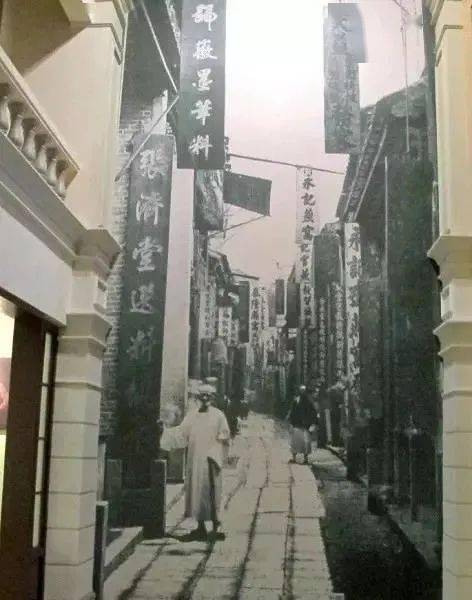
清末民国初期时的高第街 Gaodi Street during the late Qing Dynasty and the early Republic of China era
高第街不但是一条商业古街,它还是广州最早涉足对外贸易的地方之一。
宋徽宗年间,广南路市舶司(又称广州市舶司)正式在广州设置,对市舶贸易进行监督和管理,类似今天的海关。
During the Song Dynasty, the Maritime Trade Office (Shibo si) was established in Guangzhou to administrate foreign trade affairs.
当时,在珠江边上建有市舶亭,即泊口码头。市舶亭前则是管理海舶、宴请外商的地方——海山楼(今北京路与大南路交界处一带,在元代时遭火焚,已不存)。
Foreign merchant ships must berth and received inspection at the wharf—Shibo ting(pavilion). In front of Shibo ting stood the Haishan Tower, where banquets were held for western merchants of all ranks.
高第街离市舶亭和海山楼很近,因此外商们从市舶亭登岸后见到的第一条街市便是高第街。
当时的高第街有很多外国商人光顾,高第街的小商贩也很懂“商机”,一旦见有外国商船准备泊岸,小商贩即会纠合珠江边上的渔民偷偷驶船靠上去,直接与洋商交易。
When the westerners came ashore, the first place they would see was Gaodi Street, as it was located quite near Shibo ting and Haishan Tower. Traders in Gaodi Street were good at doing business and would seize every opportunity to trade with foreign merchants.
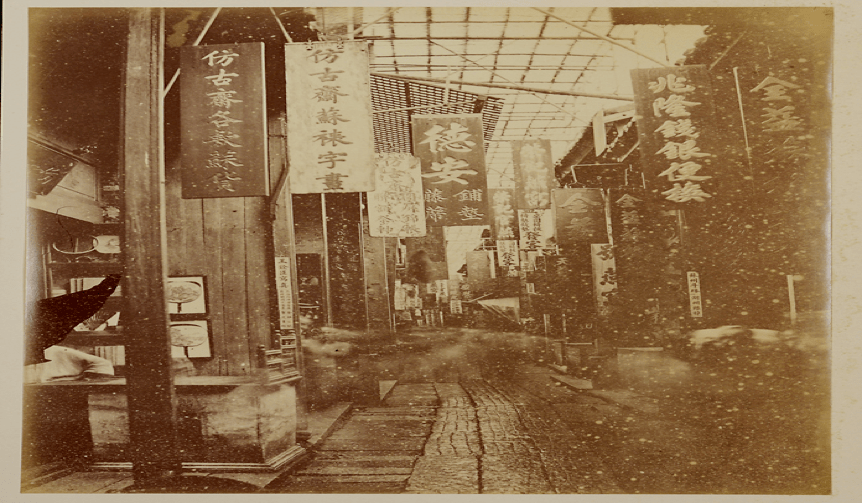
高第街老照片一瞥 A glimpse of the old Gaodi Street
明朝万历至崇祯期间,广州每年夏冬两季都会定期举行市集贸易(故称“定期市”),当时贸易市的地点就在海珠岛一带,又名海珠石(现已经埋沉在沿江西路与长堤一横路交汇附近一带地下)。
Since the reign of Emperors Wanli of the Ming Dynasty, Guangzhou started holding trade fairs regularly in Haizhu Dao (Islet), which was buried and became part of today’s Yanjiang Xi Lu in the city.
虽然贸易市的场地虽然不大,但是生意却非常火爆,海外商人在这里可以直接向中国各地商人购买生丝、丝织品、瓷器等商品。海珠岛“定期市”的出现,直接带旺了这一带的商业发展,尤其是附近的高第街。
The fairs attracted numerous merchants from home and abroad to Guangzhou, bringing with them diverse kinds of goods, and greatly promoted the development of the Haizhu Islet, as well as Gaodi Street nearby. It’s recorded that the street was even more prosperous than the busy riverside areas along the Qinhuai River, the biggest river in Nanjing.
当时高第街外贸商业繁华到怎样程度呢?有资料的文字这样形容:
“香珠犀角如山,花鸟如海,番夷辏辐,日费数千万金,饮食之盛,歌舞之声,过于秦淮数倍。”即是说,它的繁华程度比当时的首都——应天府(南京)的秦淮商业区还要强几倍!
自清朝开始,高第街以经营鞋类、头绳、梳篦、布匹和“苏杭杂货”著称,并一度被称为“苏杭街”,但凡婚姻嫁娶用品,都能在高第街买齐。
不过,到了晚清时期,十三行几乎垄断了全国外贸,高第街的外贸生意从此江河日下。
Since the Qing Dynasty, Gaodi Street gained a reputation for selling groceries from Suzhou and Hangzhou, and was widely called as Suhang Street. From combs and mirrors to delicate clothes and wedding dresses, one could find everything needed for a wedding on the street. But unfortunately, in the late Qing Dynasty, foreign trade in Gaodi Street declined gradually with the rise of the Thirteen Hongs.
曾是不少广州老字号的‘总部’
Location of time-honored brands in Guangzhou
高第街还见证了广州不少老字号的发展,是潘高寿、纶昌、九同章和三多轩等老字号商铺的聚集地。这些名店提升了高第街的知名度,造就了高第街的繁华。
Gaodi Street also witnessed the development of some time-honored brands in Guangzhou.
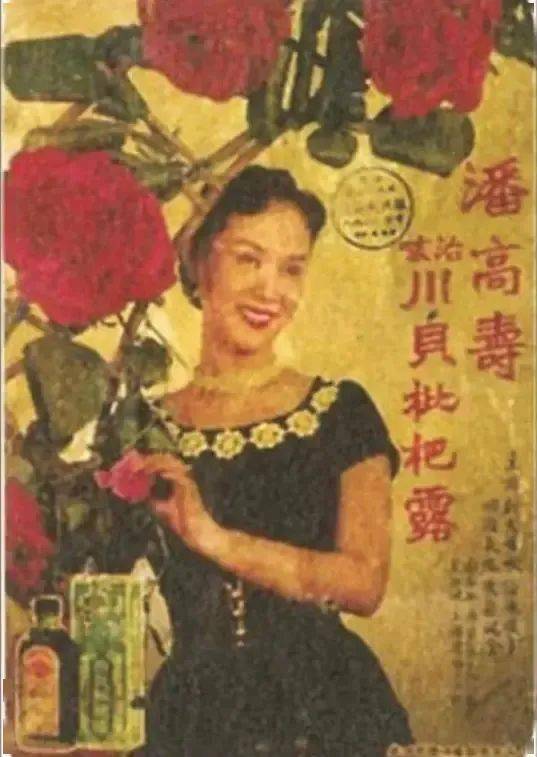
潘高寿止咳川贝枇杷露广告 A print ad of Loquat and Fritillary Extract developed by Pangaoshou
光绪年间(约公元1890年前后),广东开平人氏潘百世、潘应世兄弟在广州高第街设药铺,店号“长春洞”。该店制作的潘高寿川贝枇杷露,在当时是家喻户晓的治咳药,并行销省港澳以及台湾等地。
Pangaoshou, a pharmaceutical company that invented Loquat and Fritillary Extract, began its business in Gaodi Street in around 1890 during the reign of Emperor Guangxu in the Qing Dynasty. Loquat and Fritillary Extract of Pangaoshou had been a huge success after hitting the market with good therapeutic effects and a reasonable price, and was popular across the province.
至今仍驰名国内外的文房四宝名店三多轩,始创于清咸丰年间,其原址就在高第街221号(现广州市越秀区高第街56号),在1958年才迁至永汉路(今北京路)经营。
Sanduoxuan, one of Guangzhou’s best-known brand for stationery from the 1820s, set up its first shop in No. 221, Gaodi Street(present-day No. 56 Gaodi Street) and moved to Yonghan Lu(Beijing Lu) in 1958.

民国时期广州的丝绸店 A silk shop in Guangzhou in the Republic of China era
此外,颇负盛名的九同章绸缎店也在高第街营业。
九同章创立于清光绪三十一年(1905),店址在惠爱街,即现在的越秀区中山五路。1930年,九同章正式搬到高第街新址营业。
Founded in 1905 during the reign of Emperor Guangxu in the Qing Dynasty, Jiutongzhang, a prestigious silk shop, was opened in Hui’ai Street(present-day Zhongshan Wulu) and then moved to Gaodi Street in 1930.
至今,九同章仍在高第街内,成为高第街内的“中华老字号”的唯一代表。
Till now, the shop’s location remains unchanged and becomes the only representative of the Chinese time-honored brand in Gaodi Street.
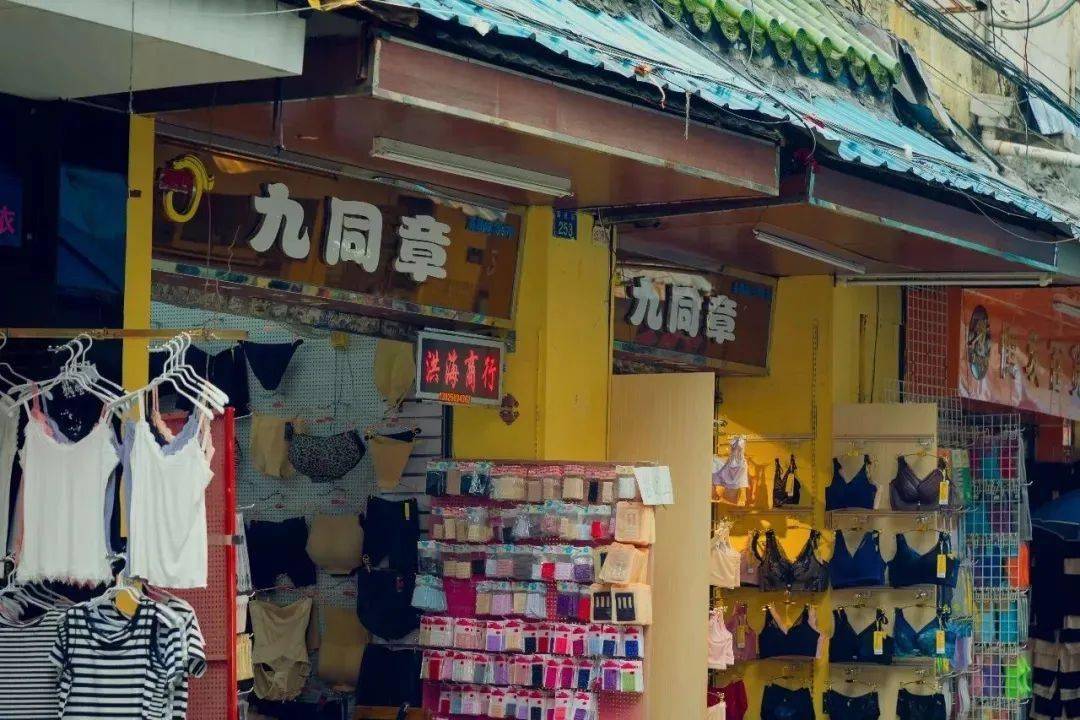
现存高第街的九同章(图片广州美食玩乐)Present-day Jiutongzhang in Gaodi Street
广州第一家族在这诞生
The birthplace of Xu Family
有着“近代广州第一家族”之称的许氏家族,也诞生于高第街。
The prosperous street also was the birthplace of the legendary Xu Family in Guangzhou.
清朝乾隆年间,广东潮汕人许永名,为了改善贫困的生活,离开故土来到广州高第街经商谋生。后其长子许拜庭经营盐业,成为嘉庆年间广州四大盐商之首。
为了以“高第”之名鼓励子弟习儒入仕,光耀门楣,许拜庭特选定高第街作为家族的永久性居住地,在此置地筑楼,前临街圩,后靠玉带濠,高门大屋,雕梁画栋。
During the reign of Emperor Qianlong of the Qing Dynasty, Xu Yongming from Chaoshan or Teoswa, a cultural-linguistic region in the east of Guangdong, migrated to the provincial capital Guangzhou in the early 19th century and made a living by doing business in Gaodi Street. Later, Xu’s eldest son Xu Baiting, the leading salt merchant in Guangzhou during the reign of Emperor Jiaqing, chose to settle down in Gaodi Street and built grand mansions there.
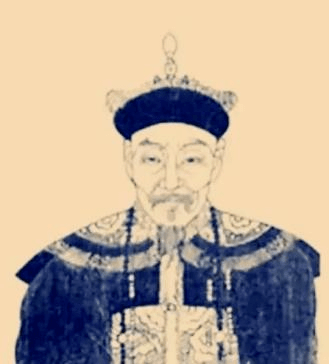
广州四大盐商之首许拜庭画像 A picture of Xu Baiting
数年后,其长子许祥光又率族人在此修祠建宅,名为“拜庭许大夫家庙”。从此,许氏在此聚族而居,繁衍生息,人才辈出,终成羊城望族,人们因此就将此地称为“许地”。据记载,当时许地总面积达9700多平方米,包括家庙、戏台、藏书室、花园等,住有22房子孙。
Generations of the Xu Family flourished there in a large private residential compound known as Xudi. According to historical records, Xudi, with a total area of more than 9,700 square meters, housed an ancestral hall, a theater stage, a private library, antique gardens and 22 households, although most of the structures are now gone.
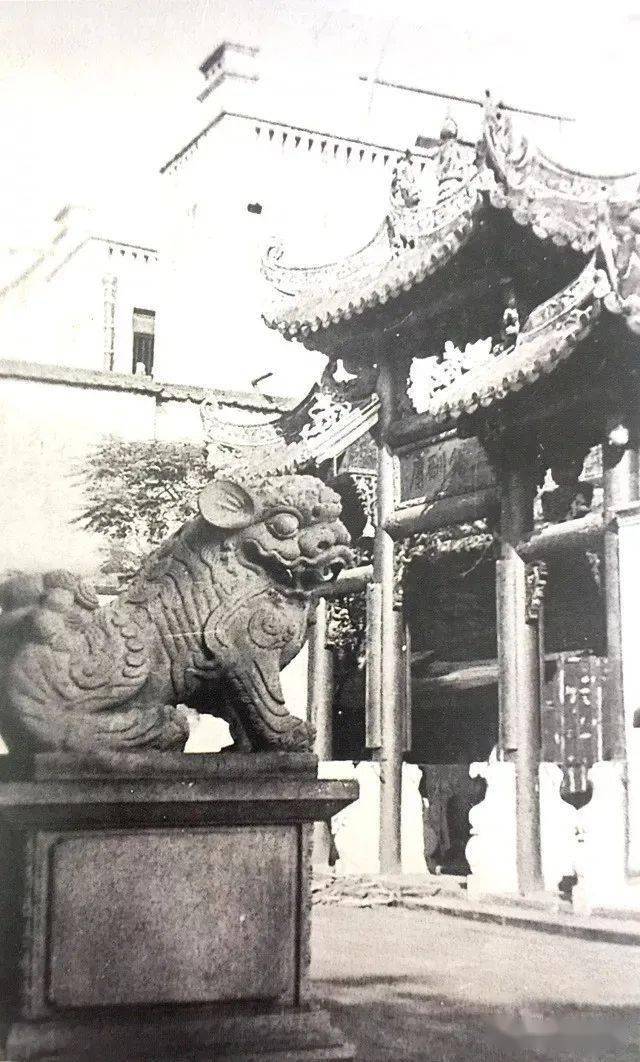
广州许地家庙前牌坊原貌(图片汕头沟南许地)A memorial archway in front of the ancestral hall of the Xu Family in Guangzhou
此后200多年,高第街许地许氏家族名人辈出:有鸦片战争时期领导绅民抗英的许祥光,有鲁迅的夫人许广平,有辛亥革命元勋许崇智,有近代著名教育家许崇清……
In some 200 years from the late Qing period, members of the Xu Family served in multiple capacities and contributed their parts in reviving the Chinese nation in peril.
时过境迁,如今的高第街许地,虽已不复当年的规模,但宗祠一带仍遗留着部分许氏故宅,装饰着精致的木雕,在默默诉说着许地的故事。
高第街现状
Current situation of Gaodi Street
改革开放后,高第街成为了广州市第一个工业品市场,也是全国第一条经营服装的个体户集贸市场,灵活的经营方式以及新潮的服装款式吸引了来自全国各地的旅客和商贩。
1986年前后是高第街的黄金时代。那时,从各地到广州旅游的人,纷纷跑到高第街,亲眼看看这个如雷贯耳的“个体服装一条街”,顺便买上几件又便宜又时髦的衣服。
In the 1980s, Gaodi Street became a popular place for self-employed clothes dealers in Guangzhou, and many businessmen and tourists across the country came there to purchase clothes.
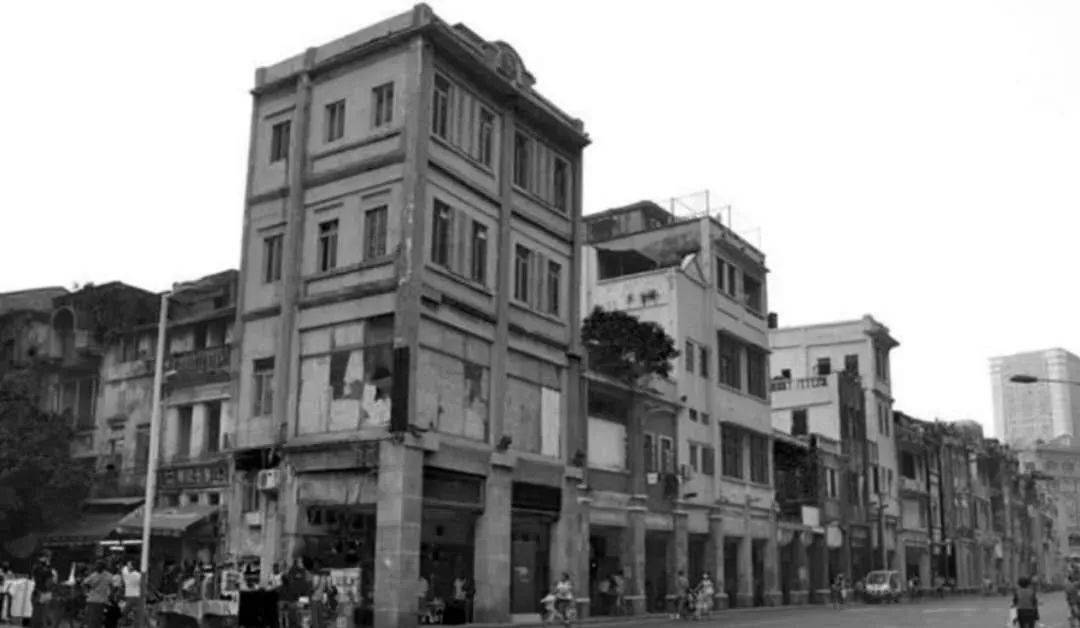
上世纪80年代的高第街 Gaodi Street in the 1980s
上世纪90年代初, 高第街开始形成“天光墟”,即早市,加上高第街的日市和西湖路的夜市, 呼应互补,组成了广州当时的著名商圈。
In the early 1990s, Tianguang Xu, or the morning fair, came into being around Gaodi Street. The fair, along with the daytime markets in the street and a night fair in Xihu Lu, helped form the famous business circle of Guangzhou at that time.
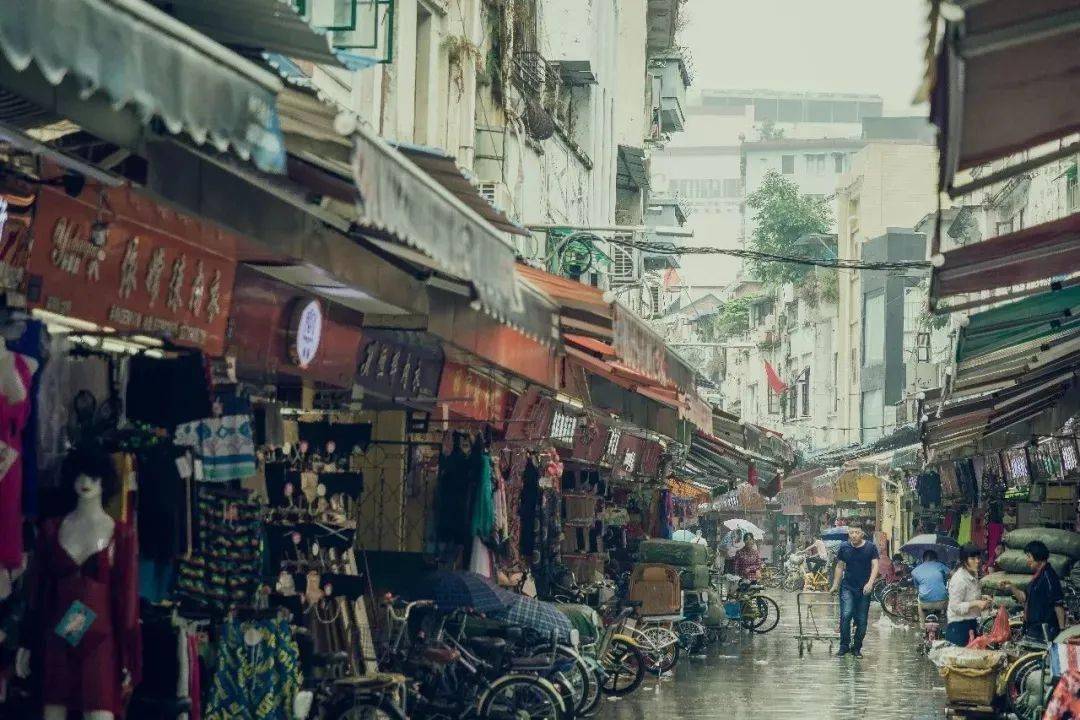
如今的高第街 Present-day Gaodi Street
随着城市商业的发展,如今的高第街盛景不再,但这里商业气息依然浓厚,成为批发零售文胸、皮带、泳衣等零碎小物的聚集地。
Inheriting its commercial tradition, Gaodi Street now has developed into a business district for the wholesale of underwear, belts, swimming suits and other small accessories.
来源 ▏丝路云帆
本微信公众号法律顾问:
广东迅恒律师事务所 卢锐湘律师
▼广东海丝馆 网上商场
▼返回搜狐,查看